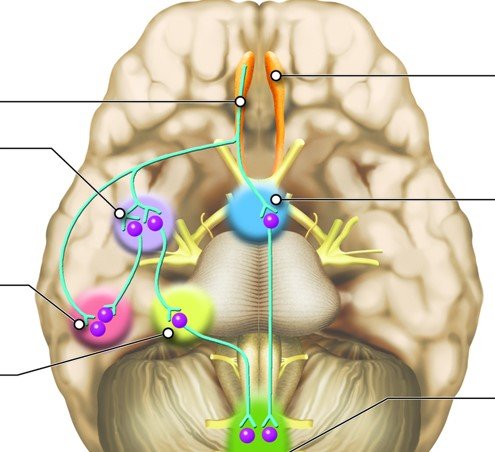University of Nebraska-Lincoln Study Investigates Link Between Beef Consumption and Brain Health
Researchers at the University of Nebraska-Lincoln (UNL) are embarking on a groundbreaking study to determine whether beef consumption could play a role in slowing the aging of the brain. This initiative, led by the Center for Brain, Biology, and Behavior, is poised to explore the potential connection between diet and cognitive health, a topic that has yet to be fully understood.
The study is set to examine the effects of eating beef on brain function, building on previous research by UNL’s Director Aron Barbey. Barbey’s earlier research, which involved 100 older adults, found that diets rich in certain fatty acids, antioxidants, and vitamins resulted in slower cognitive decline. The study concluded that nutrition plays a significant role in preserving brain health, beyond factors like physical fitness or body shape. This revelation sparked interest in further investigating the specific foods that could have a positive impact on brain aging.
Investigating the Role of Beef in Brain Health
The upcoming study at UNL will focus on a new angle—how beef, specifically, could help slow the aging process of the brain. With the involvement of 240 healthy undergraduate students, the research will delve into the cognitive effects of consuming beef and whether it could be linked to improved brain function and reduced aging.

Aron Barbey, who leads the research, has emphasized that understanding which foods, including beef, are most beneficial for brain health is a central question in neuroscience. “As we work to improve public health, it’s crucial to explore how foods like beef might influence brain function,” Barbey said. His team hopes to uncover valuable insights into how proteins and nutrients found in beef contribute to cognitive health, particularly in terms of slowing the natural aging process of the brain.
The Study’s Methodology
This study will involve a series of cognitive, nutritional, and brain health tests over the course of 12 weeks. Students will eat beef as part of their regular diet while their brain health is monitored through these tests. Researchers will track any changes in cognitive performance and analyze the data to determine if there are any measurable effects from the beef consumption.
The research is part of a larger effort to explore how different nutrients, from proteins to vitamins, can affect cognitive function. While beef is often viewed as a protein source for muscle growth, this study seeks to determine whether it also plays a unique role in promoting brain health. With its rich content of B vitamins, iron, and other essential nutrients, beef could hold key components that help maintain cognitive function as we age.
Support from Beef Industry Groups
The study is being funded by several prominent beef industry organizations, including the Nebraska Beef Council, the Texas Beef Council, and the National Cattlemen’s Beef Association. These groups, alongside the Beef Checkoff program, have provided the financial backing for the research, which has garnered attention due to its potential implications for both health and the beef industry.
Additionally, UNL’s Department of Animal Science and Loeffel Meat Lab are also contributing to the study, providing valuable expertise and resources related to the nutritional analysis of beef. The involvement of these departments ensures that the research will be scientifically rigorous, with accurate data collection and analysis throughout the study.
Potential Impact on Public Health and Beef Consumption
The findings of this study could have a significant impact not only on the beef industry but also on public health. If researchers can establish a clear link between beef consumption and improved brain health, it could open the door to new dietary recommendations and increase consumer interest in beef as a part of a brain-healthy diet.
While the study is still in its early stages, it could pave the way for future research exploring the benefits of various foods on cognitive function and aging. As people seek to find ways to maintain their mental sharpness as they grow older, studies like this could provide the evidence needed to incorporate specific foods into a brain-healthy lifestyle.
The outcome of the research could also lead to a better understanding of how specific proteins and nutrients—found in foods like beef—work to enhance cognitive health. This knowledge could be used to shape public health campaigns and dietary guidelines that promote brain health, offering new ways for individuals to slow down the effects of aging on their minds.

Comments